Cargando...
Recursos educativos
-
Nivel educativo
-
Competencias
-
Tipología
-
Idioma
-
Tipo de medio
-
Tipo de actividad
-
Destinatarios
-
Tipo de audiencia
-
Creador
Lo más buscado
- Actividades imprimibles para primaria
- matemáticas primaria
- Alimentación saludable en segundo
- Descargar ejercicios de música para niños
- Letras J
- Estadística descriptiva
- imprimir ejercicios de matemáticas
- Palabras correctas e incorrectas
- Juegos de tablas de multiplicar educación infantil
- Repaso acentuación
- Niños ciegos
- Ejercicios escolares para niños de 7 años
- Experimentos
- Capitales de Europa
- Letras I
-
Initial evaluation 8.03 - The Great Geographical Discoveries
EduBook Organización
- 3857 visitas
Are the following statements true or false?: Magellan and Elcano were the first to go around the world. Hernán Cortés led the conquest of the Aztec empire. The Inca empire was conquered by Amerigo…
-
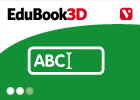
Final self-evaluation 14.01 - Human Societies
EduBook Organización
- 3745 visitas
Complete the sentences with the missing words: linguistic – inequalities – economic progress – conflicts – diversity - cultural - social transformation The of human societies is because of…
-
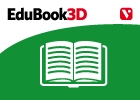
Medieval monasteries
EduBook Organización
- 3593 visitas
4.1. The ruralisatiton of the Church In the Middle Ages, the Church controlled the social and private life of the population. It also established religious obligations, like praying, going to mass on…
-
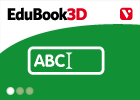
Correct. The Caliphate of Cordoba
EduBook Organización
- 3473 visitas
Re-write these sentences about the Caliphate of Cordoba and correct the mistakes: In the year 1031, Abd ar-Rahman III came to power. Abd ar-Rahman III was unable to defeat the Christans in battle. Abd…
-
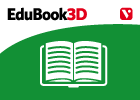
Unit 14: Humna societies
EduBook Organización
- 3432 visitas
Constitutional state (n): a state in which the middle class have wealth and influence. cultural characteristics (n): the traditions, religious beliefs, diet and ways of dressing of people from different…
-
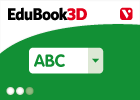
Complete. Domestic and foreign conflicts
EduBook Organización
- 3346 visitas
Choose the correct option in each case and complete the table about the conflicts during the reign of Charles I: Peasant and Comunero revolts. Causes: Consequence: The Revolt of the Brotherhoods.…
-
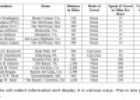
Presidential homes
Tiching explorer Organización
- 1 lo usan
- 4745 visitas
Lesson designed to help students understand the political, religious, social, and economic institutions that evolved in the colonial era. Students identify various presidents and talk about their homes.…
-
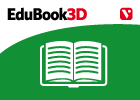
Before you start - The Baroque Age
EduBook Organización
- 3167 visitas
Didactic objectives Analyse the demographic changes that took place in 17th century Europe. Explain the characteristics of the economy and society of 17th century Europe. Identify the most important…
-
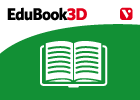
The Reformation and the Counter-Reformation
EduBook Organización
- 3161 visitas
2.1. The causes of religious reform At the end of the Middle Ages, people began to question the attitudes of the high clergy, such as their luxurious lifestyles, the buying and selling of ecclesiastical…
-
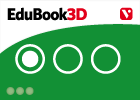
Final self-evaluation 10.07 - The Baroque Age
EduBook Organización
- 2983 visitas
Choose the correct answer: The veneration of religious images in churches was a feature of... The Baroque introduced new aesthetic values, such as... The most representative figure of Italian Baroque…
Te estamos redirigiendo a la ficha del libro...













